James Moran, Senior Lecturer
23/01/2023
Embedding employability in the curriculum is not optional – it is a requirement for all our courses. However, the way in which this is achieved may vary from one course to another, depending on the nature of the subject area. Nevertheless, there are some considerations which will apply regardless of the discipline, and this section refers to various factors and sources that should be taken into account at the start of the course development process.
University strategies
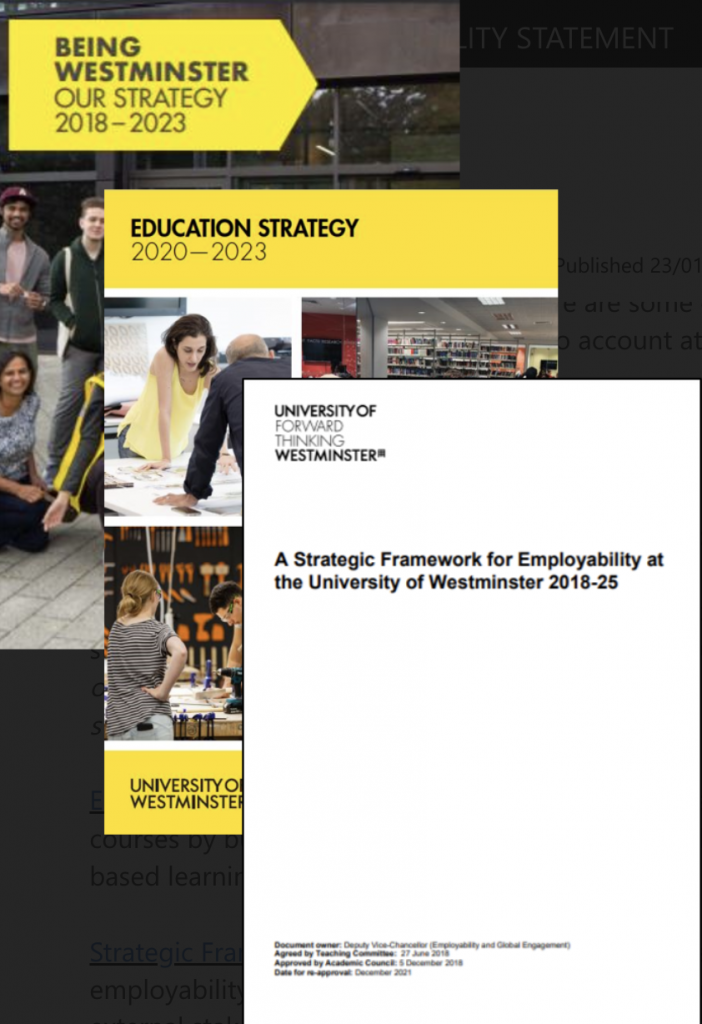
The University’s commitment to employability can be found in the following key strategies:
Being Westminster – Our Strategy 2018-2023: Employability is one of the four objectives of our strategy. Specifically, the objective commits us to “providing employability-related learning, opportunities for engagement with employers, and industry-informed courses that unlock our students’ true potential”.
Education Strategy 2020-2023: Commits us to embedding employability and enterprise in our courses by building in employability skills, transferable skills and digital skills, and by ensuring work based learning in every course.
Strategic Framework for Employability 2018-25: Sets out the core principles for embedding employability in curricular, co-curricular and extra-curricular provision and in our interactions with external stakeholders. Central to this is the provision of an Employability Journey in which all all students can participate.
Work based and placement learning (undergraduate courses)
A key component of the Employability Strategy (see above) is a requirement for all undergraduate courses to incorporate work based and placement learning opportunities. Specifically, the requirement is for all students to have the option of a year-long placement between levels 5 and 6, and for mandatory short- or medium-term work based and placement learning opportunities at Levels 4 and/or 5. The requirements are shown graphically below:
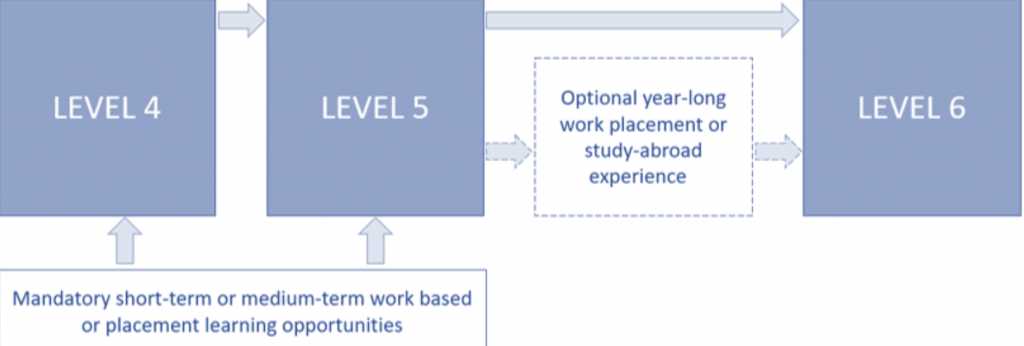
Meeting the requirements requires very careful consideration on the part of the course team. Particular attention should be paid to the following:
⊛ The forms of activity and assessment methods used for the short- or medium-term work based or placement activity at Levels 4 and 5.
⊛ The modules that will accommodate the activities at Levels 4 and 5.
⊛ The relationship of the optional year-long placement to other modules.
Course teams should consult the following sources of information for further guidance:
⊛ Guidance document “Integrating work based and placement learning into the curriculum“
⊛ SharePoint pages for the Work Based and Placement Learning Project Team, including links to further sources and contact details for the team.
Data sources and other useful information
Course teams are advised to make use of the University’s data sources to inform their planning in relation to employability. The QlikView dashboard provides access to current and historic employability data from the Graduate Outcomes Survey and the old ‘Destination of Leavers from Higher Education’ (DLHE) survey. The data can be interrogated by filtering according student demographics, so it can provide an indication of particular challenges that need to be addressed.
It is also advisable at the earliest possible stage in the process to compile lists of external stakeholders who may be able to contribute to the course development process. This may include employers, professional bodies, industry bodies, cultural organisations, charities and alumni. Such stakeholders can offer insights into the expectations of graduates in the workplace. In due course they may also be able to offer placement opportunities or contribute to the curriculum in other ways through visits, guest speakers and so on.
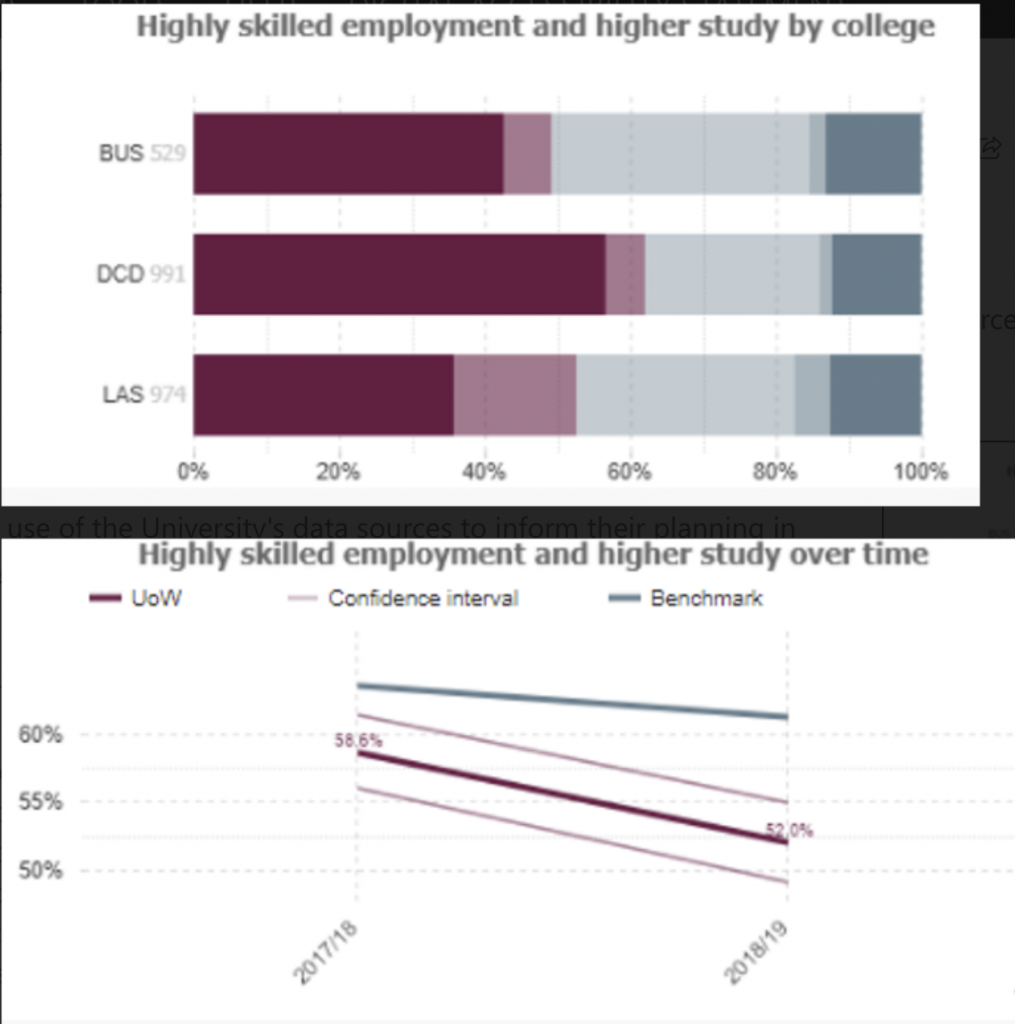
Latest posts by ferzanr2 (see all)
- Sustainability Autumn Newsletter - December 6, 2024
- Module Leader Continuous Improvement Report - December 4, 2024
- Celebrating Multilingualism at Westminster - November 28, 2024


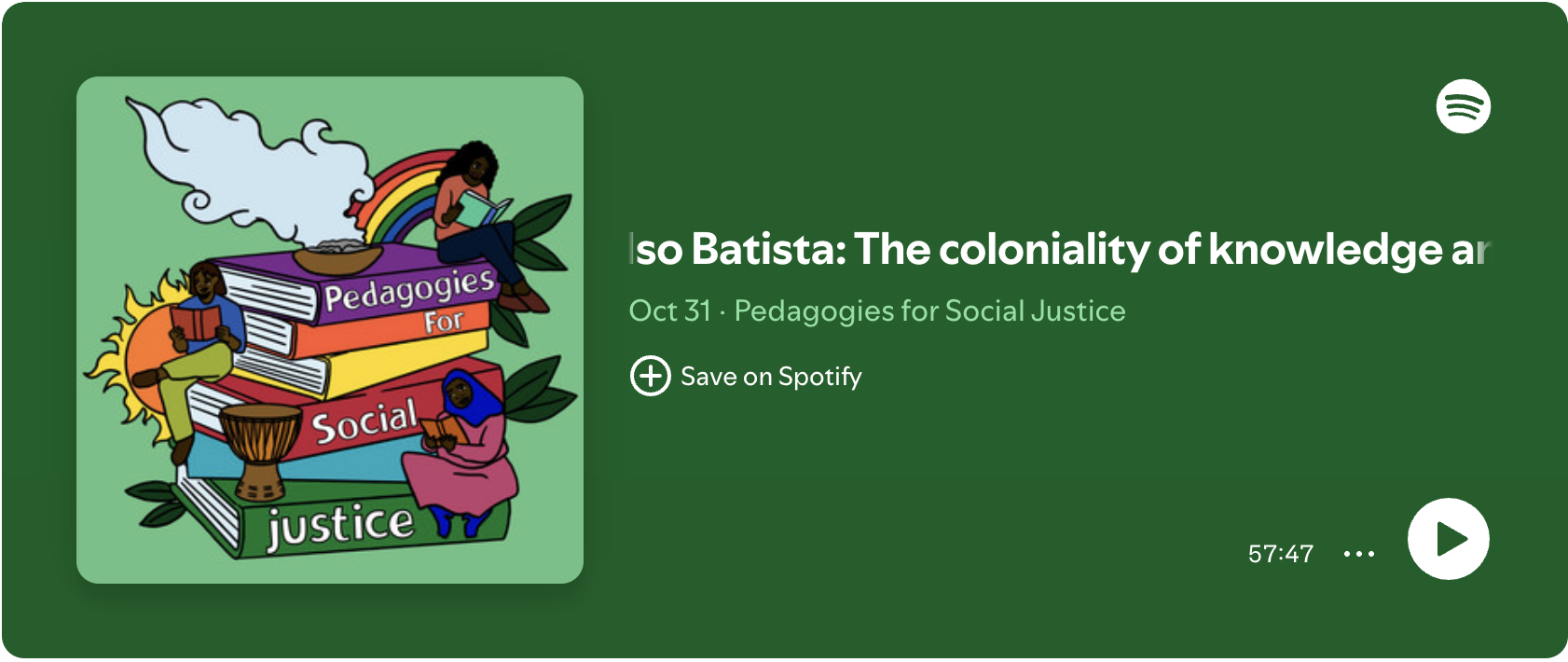

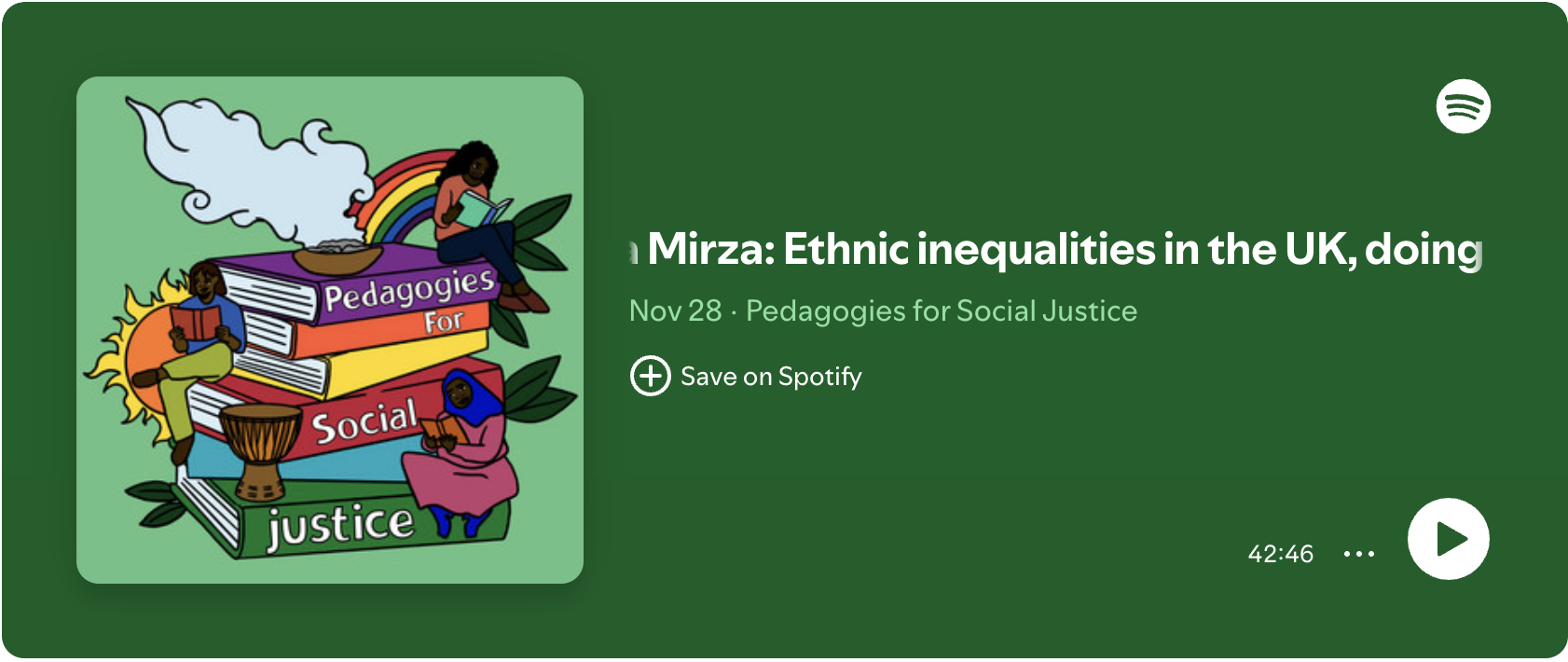
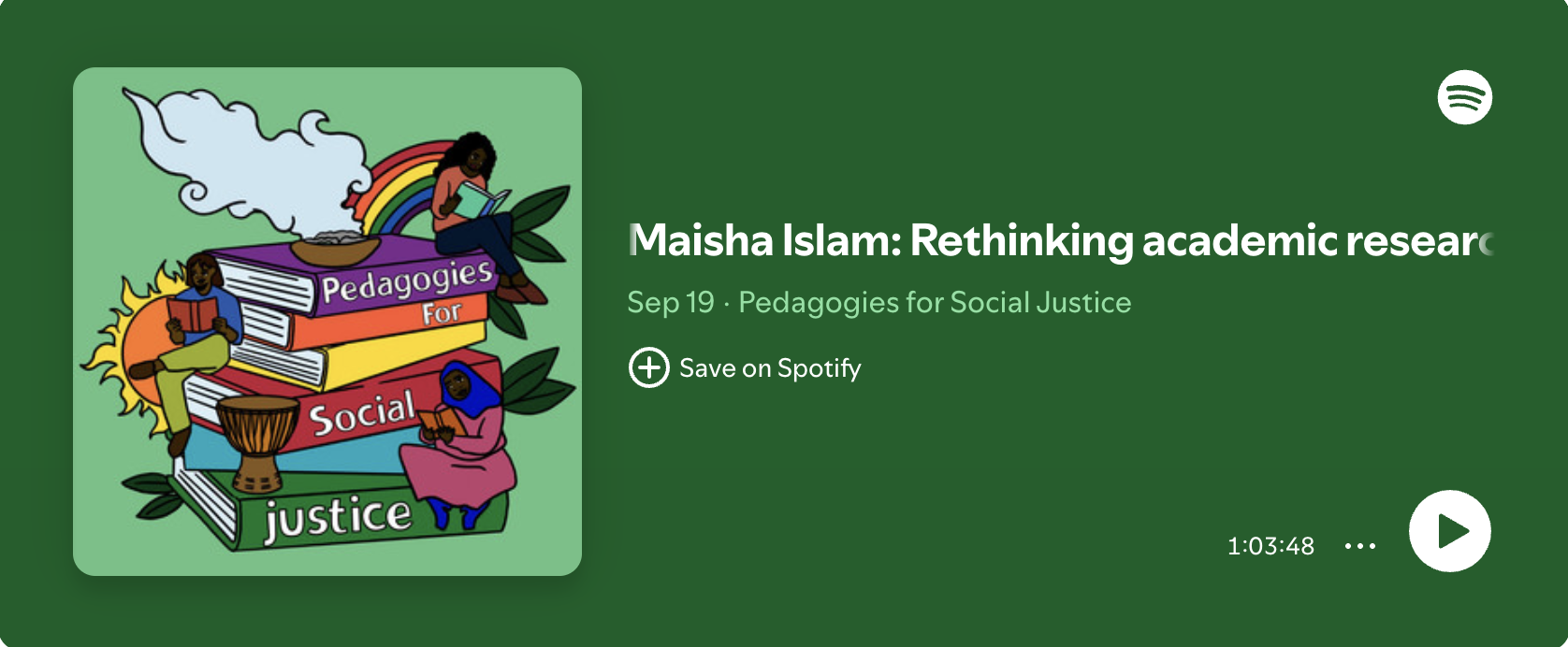

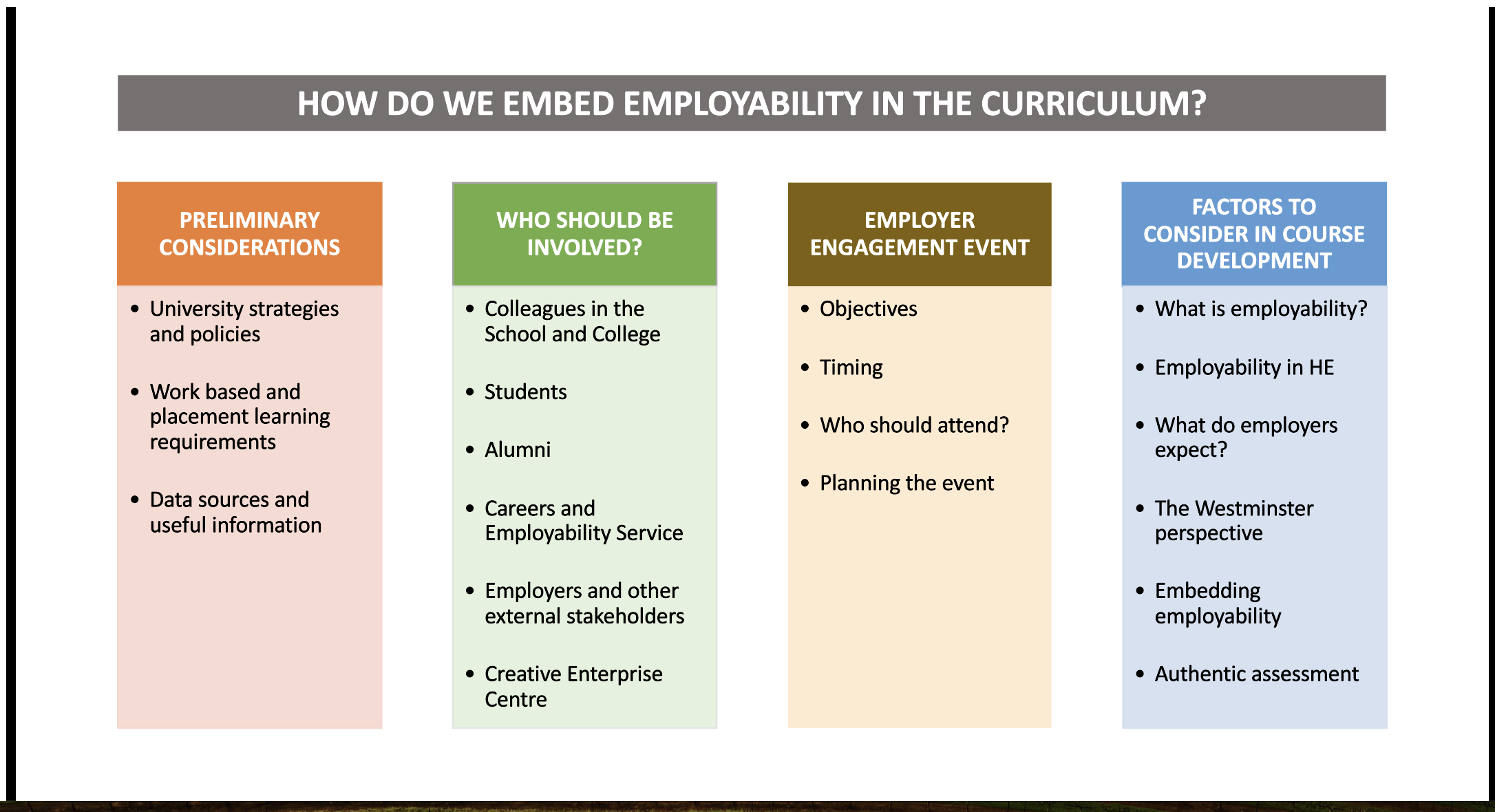



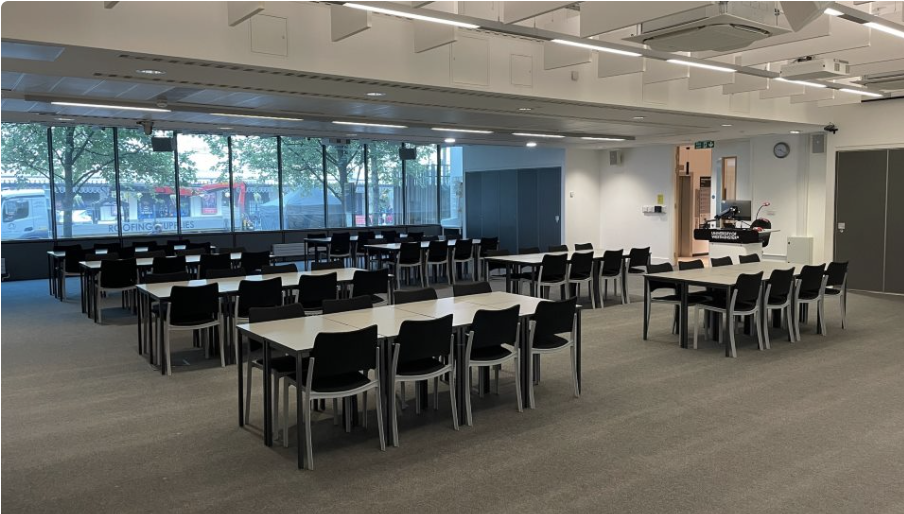
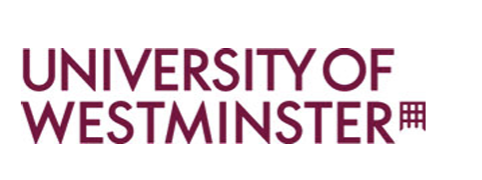
Leave A Comment